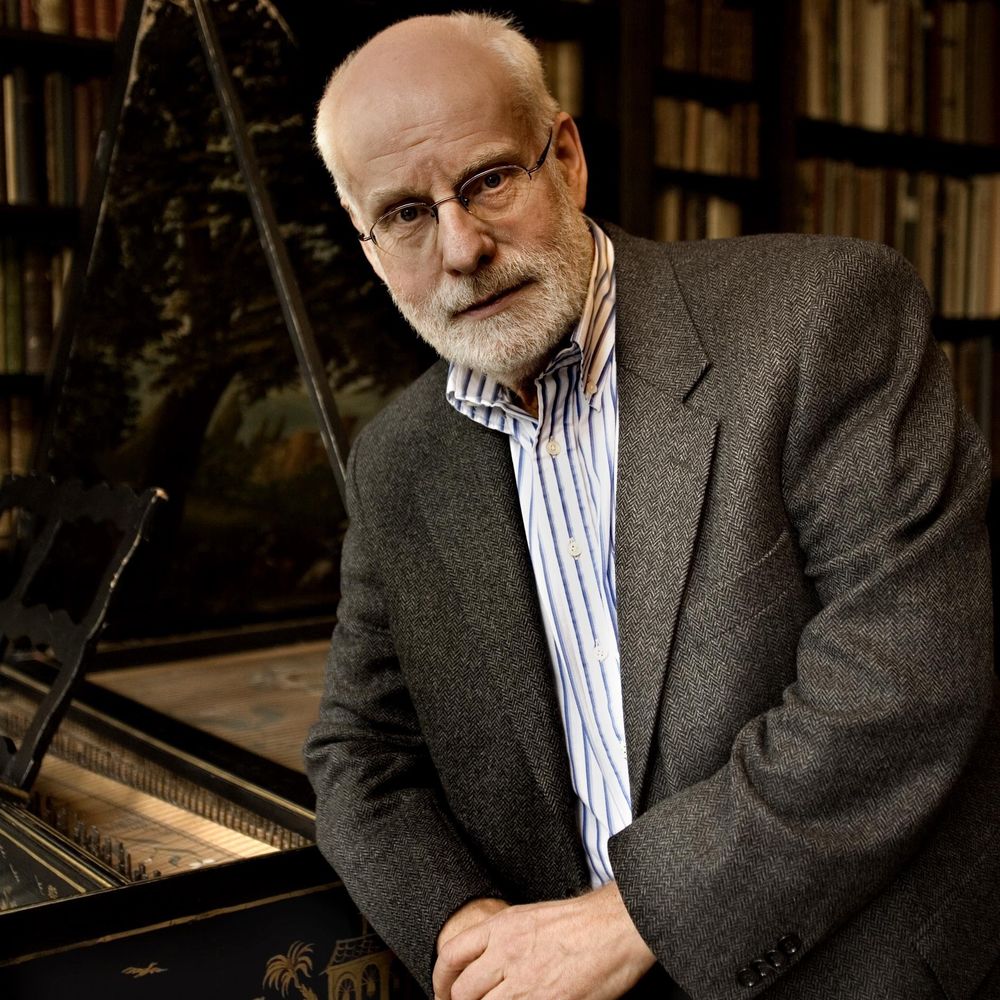

Born in Zwolle, The Netherlands, October 2, 1944, Ton Koopman had a classical education, and studied organ, harpsichord, and musicology in Amsterdam. He received the Prix d'Excellence for both instruments. Naturally attracted by historical instruments, and fascinated by the philological performance style, Koopman concentrated his studies on Baroque music, with particular attention to J.S. Bach, and soon became the leading a leading figure in the "authentic performance" movement. As organist and harpsichordist, Koopman has appeared in the most prestigious concert halls of the world and played the most beautiful historical instruments of Europe. At the age of twenty-five, he created his first Baroque orchestra, and in 1979 he founded the Amsterdam Baroque Orchestra followed in 1992 by the Amsterdam Baroque Choir. Combined as the Amsterdam Baroque Orchestra & Choir, the ensemble soon gained worldwide fame as one of the best ensembles on period instruments. With a repertoire ranging from the early Baroque to the late Classics, they have performed at the Concertgebouw in Amsterdam, Théatre des Champs-Elysées and Salle Pleyel in Paris, Barbican and Royal Albert Hall in London, Musikverein and Konzerthaus in Vienna, Philharmonie in Berlin, Lincoln Center and Carnegie Hall in New York, Suntory Hall in Tokyo as well as in Brussels, Milan, Madrid, Rome, Salzburg, Copenhagen, Lisbon, Munich, Athens, etc. 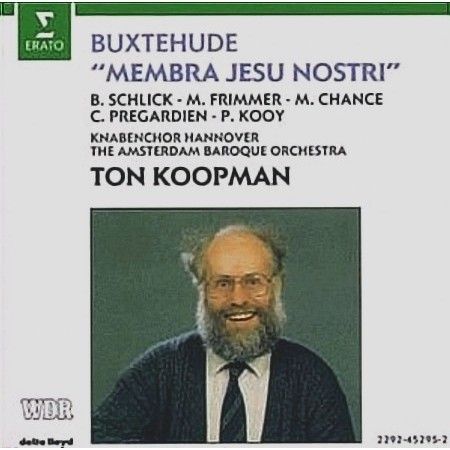 Among Ton Koopman's most ambitious projects has been the recording of
the complete Bach cantatas, a massive undertaking for which he has been
awarded the Deutsche Schallplattenpreis "Echo Klassik", the BBC Award,
the Hector Berlioz Prize, and has been nominated for the Grammy Award (USA)
and the Gramophone Award (UK). In addition to the works of Bach, Koopman
has long been an advocate of the music of Bach's predecessor Dieterich Buxtehude
and following the completion of the Bach project, he embarked in 2005 on
the recording of the Buxtehude-Opera Omnia. The edition consists of 30
CDs, the last having been released in 2014. Koopman is President of the
International Dieterich Buxtehude Society. In 2006 he was awarded the Bach-Prize
of the City of Leipzig, in 2012 the Buxtehude Prize of the city of Lübeck,
and in 2014 he received the Bach Prize of the Royal Academy of Music in
London. In 2016 he received an honorary professorship with the Musikhochschule
Lübeck and became Honorary Artistic Advisor of Guangzhou Opera House. In
2017 he received the RCO Medal Royal College of Organists (UK) and the Edison
Klassiek Oeuvre Prize (Netherlands).
Among Ton Koopman's most ambitious projects has been the recording of
the complete Bach cantatas, a massive undertaking for which he has been
awarded the Deutsche Schallplattenpreis "Echo Klassik", the BBC Award,
the Hector Berlioz Prize, and has been nominated for the Grammy Award (USA)
and the Gramophone Award (UK). In addition to the works of Bach, Koopman
has long been an advocate of the music of Bach's predecessor Dieterich Buxtehude
and following the completion of the Bach project, he embarked in 2005 on
the recording of the Buxtehude-Opera Omnia. The edition consists of 30
CDs, the last having been released in 2014. Koopman is President of the
International Dieterich Buxtehude Society. In 2006 he was awarded the Bach-Prize
of the City of Leipzig, in 2012 the Buxtehude Prize of the city of Lübeck,
and in 2014 he received the Bach Prize of the Royal Academy of Music in
London. In 2016 he received an honorary professorship with the Musikhochschule
Lübeck and became Honorary Artistic Advisor of Guangzhou Opera House. In
2017 he received the RCO Medal Royal College of Organists (UK) and the Edison
Klassiek Oeuvre Prize (Netherlands).Ton Koopman has a very wide repertoire. As harpsichordist and organist, he has performed music from the Renaissance to the Classical period, with the ABO&C he has explored intensely the Baroque and Classical period and as a conductor with modern orchestras he also approaches the early Romantics. In recent years, he has been very active as guest conductor. He has worked with the most prominent orchestras of the world, among them the Berlin Philharmonic, New York Philharmonic, Munich Philharmonic, Chicago Symphony, San Francisco Symphony, Royal Concertgebouw, Symphonieorchester des Bayerischen Rundfunks, DSO Berlin, Tonhalle Orchestra Zurich, Orchestre Philharmonique de Radio France Paris, Vienna Symphony, Boston Symphony and Cleveland Orchestra. Koopman has made an enormous number of records for Erato, Teldec, Sony, Deutsche Grammophon, and Philips. In 2003 he founded his own label “Antoine Marchand”, a sub label of Challenge Classics. He also publishes regularly. He has edited the complete Händel Organ Concertos for Breitkopf & Härtel, and recently published new editions of Händel’s Messiah and Buxtehude‘s Das Jüngste Gericht for Carus Verlag. Koopman is professor emeritus of Historically Informed Performance of Early Music at the University of Leiden, Honorary Member of the Royal Academy of Music in London and artistic director of the Festival “Itinéraire Baroque”. Since 2019 he is president of the Leipzig Bach Archive Foundation. -- Biography from Koopman's website (text only)
|
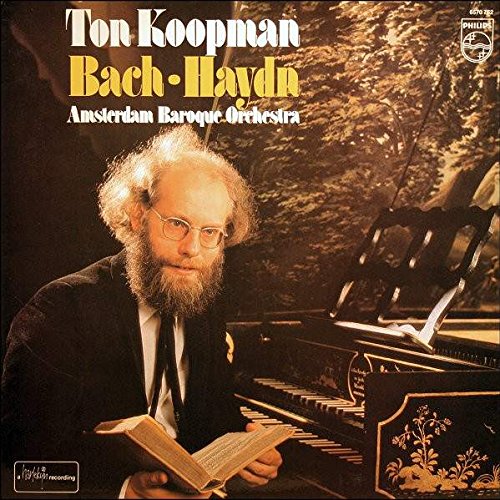 Koopman would return to the Chicago Symphony in 2006 for Bach, Mozart
and Haydn, and in 2012 for more Mozart and Haydn (including a Cello
Concerto with Yo-Yo Ma), plus Locatelli and Rebel.
Koopman would return to the Chicago Symphony in 2006 for Bach, Mozart
and Haydn, and in 2012 for more Mozart and Haydn (including a Cello
Concerto with Yo-Yo Ma), plus Locatelli and Rebel.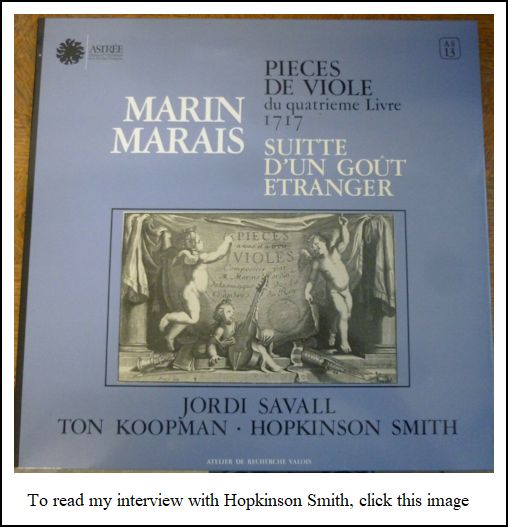 TK: No, they wrote for historical
instruments, so they knew what the sound would be. They would be
happy with hearing a Baroque orchestra with the most superb musicians
playing, I’m certain about that. But it would be very sad hearing
a symphony orchestra with doubling all the instruments and with a lot
of vibrato playing their music. I think they would be glad, as well,
to say that there are different ways of doing it. Even with Baroque
instruments, not every musician in a symphony orchestra can get to the
level of somebody who is only doing that, because it’s very difficult.
TK: No, they wrote for historical
instruments, so they knew what the sound would be. They would be
happy with hearing a Baroque orchestra with the most superb musicians
playing, I’m certain about that. But it would be very sad hearing
a symphony orchestra with doubling all the instruments and with a lot
of vibrato playing their music. I think they would be glad, as well,
to say that there are different ways of doing it. Even with Baroque
instruments, not every musician in a symphony orchestra can get to the
level of somebody who is only doing that, because it’s very difficult.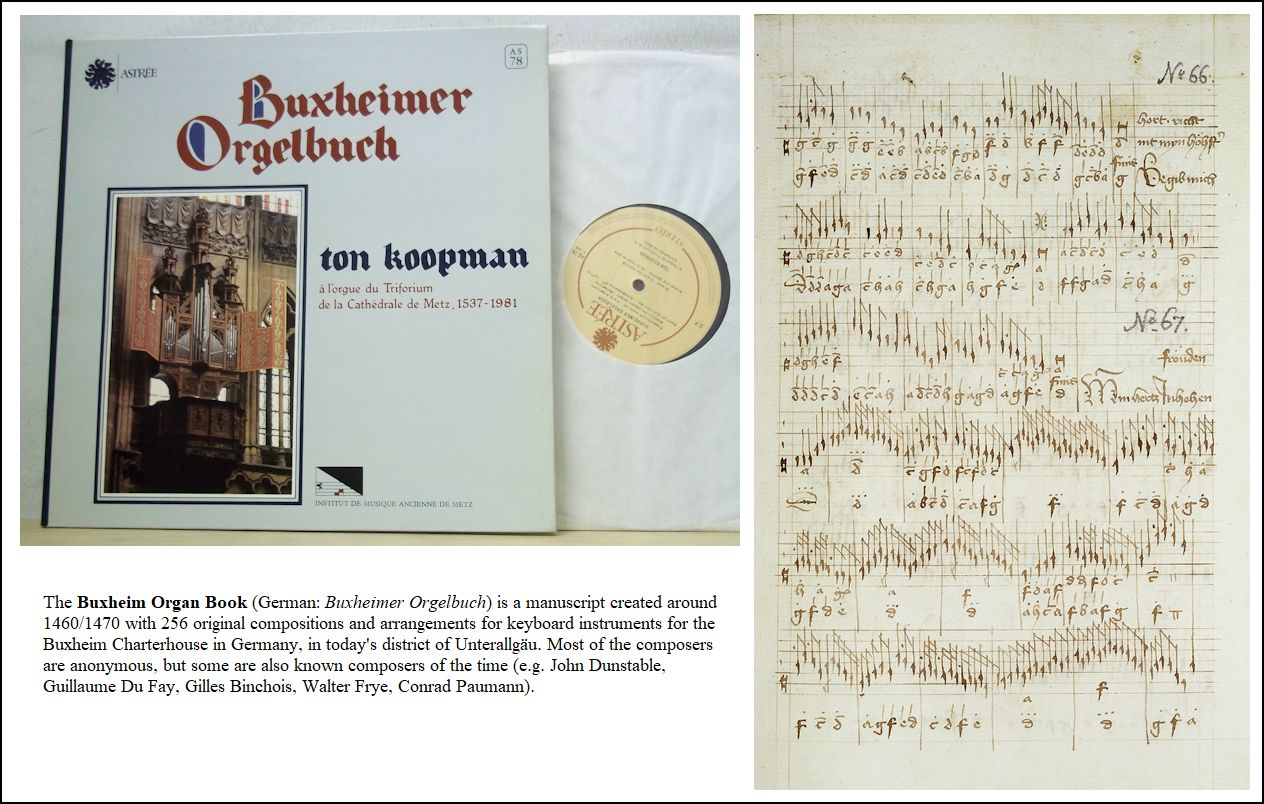
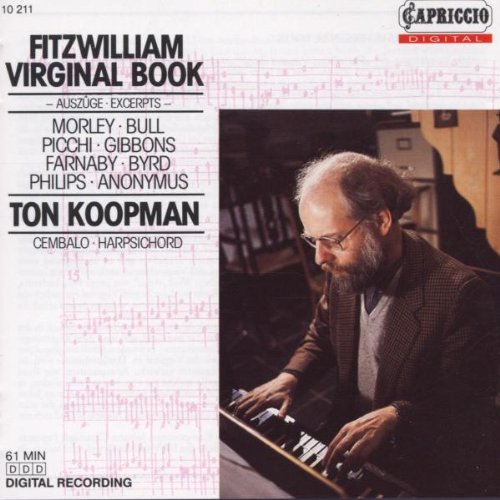 BD: Let’s go back one step further. How do you decide
what pieces you’ll put into your repertoire, and then offer for performance?
BD: Let’s go back one step further. How do you decide
what pieces you’ll put into your repertoire, and then offer for performance?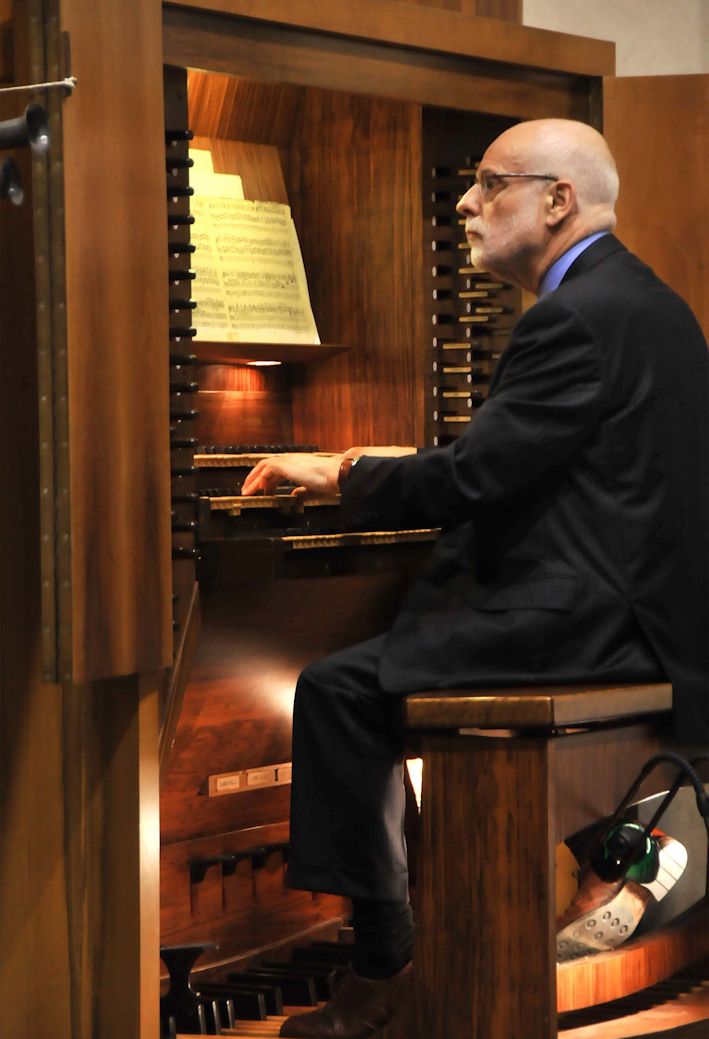 TK: No, I don’t think it was happening
then because the idea of the ‘Composer in the
Ivory Tower’ didn’t exist yet. They wrote
for the musicians they knew. J.S. Bach wrote incredibly difficult
trumpets parts because he knew his trumpeter, Gottfried Reiche (1667-1734).
He knew the players and he asked much of them, and maybe he over-asked
them, which, for a genius composer, has no borderline. But when I
see his organ music, or when I see his harpsichord music, it’s difficult,
but it’s within the possibilities. When I speak with good trumpeters,
they say that it’s very hard but it’s possible. When I speak with
horn players about the first Brandenburg Concerto or some of the
obligato horn parts in the Bach Cantatas, they sometimes say it’s extremely
hard. When Dennis Brain had to play a Mozart concerto, he said Mozart
had appeared in his dreams the night before, and he was just afraid.
It’s like that. It’s not quite a dream, but they go for it, and if
it works, it’s fantastic.
TK: No, I don’t think it was happening
then because the idea of the ‘Composer in the
Ivory Tower’ didn’t exist yet. They wrote
for the musicians they knew. J.S. Bach wrote incredibly difficult
trumpets parts because he knew his trumpeter, Gottfried Reiche (1667-1734).
He knew the players and he asked much of them, and maybe he over-asked
them, which, for a genius composer, has no borderline. But when I
see his organ music, or when I see his harpsichord music, it’s difficult,
but it’s within the possibilities. When I speak with good trumpeters,
they say that it’s very hard but it’s possible. When I speak with
horn players about the first Brandenburg Concerto or some of the
obligato horn parts in the Bach Cantatas, they sometimes say it’s extremely
hard. When Dennis Brain had to play a Mozart concerto, he said Mozart
had appeared in his dreams the night before, and he was just afraid.
It’s like that. It’s not quite a dream, but they go for it, and if
it works, it’s fantastic.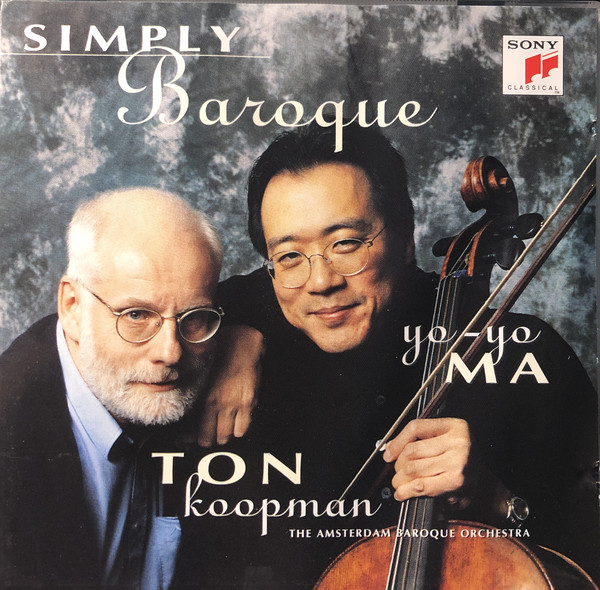 BD: If you could, would you conduct every piece that
was ever written in that time period?
BD: If you could, would you conduct every piece that
was ever written in that time period? 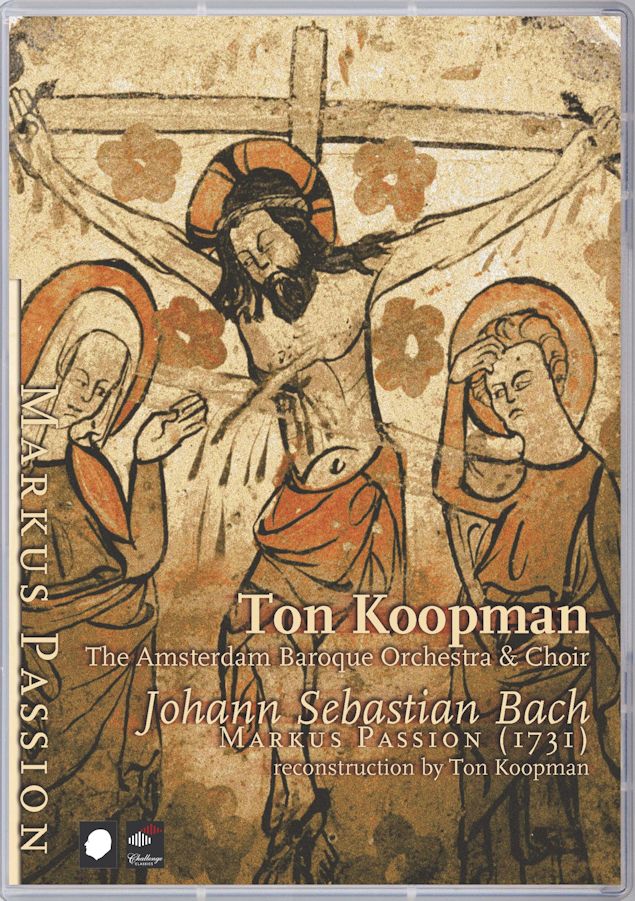 TK: In a concert, there’s an audience behind me.
If you see them or not, they’re still there, and there’s another attitude
with the musicians who perform. But there are more mistakes,
particularly with the true trumpets and natural horns. They are much
more complicated, and the intonation is much more complicated. Sometimes,
when you record a piece at 11 o’clock in the morning, you feel different
than at 10 o’clock in the evening. All those differences are there,
but I still would never have wanted to record the cantatas live.
It’s not possible. It’s too complicated. But I just did Bach’s
St. Matthew Passion for DVD as a live performance. We did
two concerts, and that’s it! With two performances they can
go from one to the other. But there were no retakes done because the
church’s sound is so completely different with an audience and without.
I’m pleased with the results. I heard the version that was
there, and with the television you see the sound belonging to it. It’s
sometimes defined by the producer, and what he likes for the television.
We also have to have what we like for the sound, but we found a very
good collaboration, and I think the result is fine.
TK: In a concert, there’s an audience behind me.
If you see them or not, they’re still there, and there’s another attitude
with the musicians who perform. But there are more mistakes,
particularly with the true trumpets and natural horns. They are much
more complicated, and the intonation is much more complicated. Sometimes,
when you record a piece at 11 o’clock in the morning, you feel different
than at 10 o’clock in the evening. All those differences are there,
but I still would never have wanted to record the cantatas live.
It’s not possible. It’s too complicated. But I just did Bach’s
St. Matthew Passion for DVD as a live performance. We did
two concerts, and that’s it! With two performances they can
go from one to the other. But there were no retakes done because the
church’s sound is so completely different with an audience and without.
I’m pleased with the results. I heard the version that was
there, and with the television you see the sound belonging to it. It’s
sometimes defined by the producer, and what he likes for the television.
We also have to have what we like for the sound, but we found a very
good collaboration, and I think the result is fine.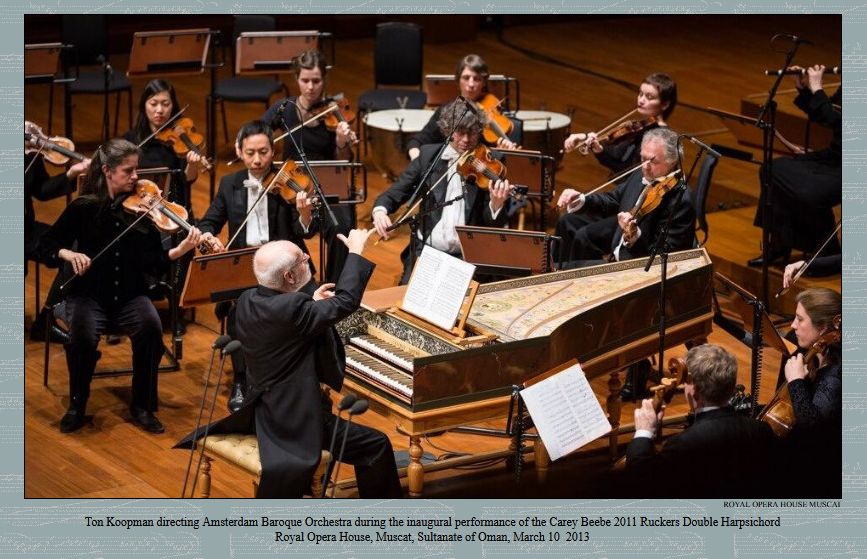
© 2005 Bruce Duffie
This conversation was recorded in Orchestra Hall, Chicago on June 17, 2005. This transcription was made in 2019, and posted on this website at that time. My thanks to British soprano Una Barry for her help in preparing this website presentation.
To see a full list (with links) of interviews which have been transcribed and posted on this website, click here.
Award - winning broadcaster Bruce Duffie was with WNIB, Classical 97 in Chicago from 1975 until its final moment as a classical station in February of 2001. His interviews have also appeared in various magazines and journals since 1980, and he now continues his broadcast series on WNUR-FM.
You are invited to visit his website for more information about his work, including selected transcripts of other interviews, plus a full list of his guests. He would also like to call your attention to the photos and information about his grandfather, who was a pioneer in the automotive field more than a century ago. You may also send him E-Mail with comments, questions and suggestions.